I just got a chance to go through the just-leaked IAEA report on Iran’s nuclear program now, but one thing I’d already noticed is that despite the write-ups of the findings being characteristically damning, no one really paid any attention. Either everyone has been too busy to take a close look, which is possible, since I certainly was. Or else there’s a “violation fatigue” that has set in, whereby the consensus understanding is shifting toward accepting that Iran simply won’t stop its enrichment efforts, whether in LEU or 20 percent enriched uranium. If that’s true, it will probably take something […]
Latest Archive
Free Newsletter
Bad day for the French defense industry: Brazilian President Luiz Inacio Lula da Silva said that the final decision on a fighter jet purchase will be made after the upcoming Brazilian presidential elections on Oct. 3, but before he leaves office on Jan. 1, 2011. The contract, expected to be worth upwards of $3 billion, was all but awarded to the French Rafale earlier this year, before the Brazilian Defense Ministry objected to a decision being made before its tender and performance evaluation had been completed. Meanwhile, Russia opened its search for amphibious command vessels to an international tender, after […]
In this four-part video opinion series on Afghanistan, WPR contributor David Axe examines obstacles to NATO and U.S. victory in Afghanistan. These include terrain, a culture of corruption, the agrarian nature of the economy, and the technology employed by U.S. and NATO forces, he argues. -o- Lesson I: Terrain -o- Lesson II: Culture of Corruption -o- Lesson III: Thinking Like a Farmer -o- Lesson IV: Technology
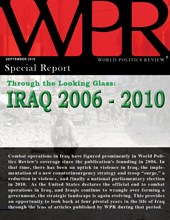
Combat operations in Iraq have figured prominently in World Politics Review’s coverage since the publication’s founding in 2006. In that time, Iraq has seen an uptick in violence, followed by the implementation of a new counterinsurgency strategy and troop “surge,” a subsequent reduction in violence, and finally a national parliamentary election in 2010. As the United States declares the official end to combat operations in Iraq, and Iraqis continue to wrangle over forming a government, the strategic landscape is again evolving. This provides an opportunity to look back at four pivotal years in the life of Iraq through the lens […]
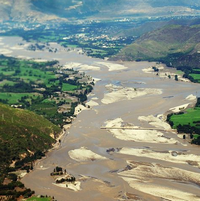
Earlier this summer, as U.S. Army helicopters began evacuating stranded people from Pakistan’s flood-ravaged northwest, one Pakistani newspaper chose to focus on a more sinister dimension of American military activity in the country. According to sources cited in an article in the Pakistani daily, the Nation, Washington is constructing a “huge base” in Islamabad to “control” South Asia. American soldiers and “personnel of Blackwater” will soon arrive, with a Guantanamo Bay-style detention camp to follow. The article noted that the base lies near Pakistani nuclear sites, offering “all kinds of opportunities” for Washington. While many Pakistanis reject such talk, many […]
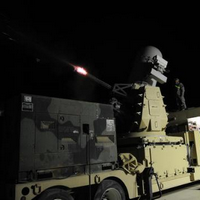
The Iraqi insurgents moved fast. Piling into the back of a civilian pick-up truck, they weaved through the western Iraqi city of Ramadi until they were within a few miles of the local American base. The truck halted, and the insurgents spilled out. In just seconds, they set up a mortar and fired at least one shell toward the base. Seconds later they were speeding to safety, their vehicle hidden in the city’s traffic. The round arced over the earthen wall surrounding the U.S. base and struck Capt. Eric Allton, a 34-year-old from Idaho. Allton died instantly. Hundreds of Americans […]

Indian Defense Minister A.K. Anthony visited South Korea last week at the invitation of his South Korean counterpart to boost defense cooperation between the two states. His visit came just two months after the Indian external affairs minister visited Seoul and at a time of great turbulence in the strategic environment of the Asia-Pacific region. After having long ignored each other, India and South Korea are now beginning to recognize the importance of tighter ties. The resulting courtship was highlighted by South Korean President Lee Myung-Bak’s state visit to New Delhi in January, when he was the chief guest at […]
I had the pleasure of participating in France 24’s week-in-review panel discussion program, The World This Week, last Friday. The other guests were the IHT’s Matthew Saltmarsh, Newsweek’s Chrostopher Dickey and France 24’s Annette Young. We discussed the Israeli-Palestinian peace talks, the “end of combat operations” in Iraq, Tony Blair’s autobiography, and French President Nicolas Sarkozy’s campaign to expel illegal Roma immigrants from France. Part one can be found here. Part two can be found here. I managed to leave the studio and make it home without having compiled a long “I should have said . . . ” list, […]
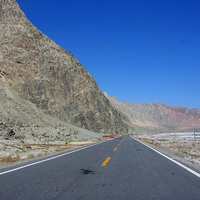
Strategic encirclement is a term that haunts Indian analysts quite a bit these days. So when noted Subcontinent watcher Selig S. Harrison reported in late August that 7,000-11,000 Chinese troops had poured into the northern part of Pakistani-administered Kashmir known as the Gilgit-Baltistan region, the feeling that India was being systematically “surrounded” by Beijing was loudly echoed in the Indian media. The revelations follow a recent controversy triggered by China’s refusal to issue a visa to an Indian general on the grounds that his area of responsibility falls in the disputed Kashmir region; Beijing will only issue “stapled visas” to […]
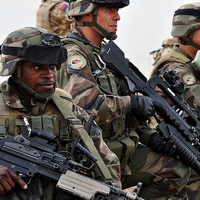
Over the weekend, the Washington Post published a report that noted strong divisions between British and American military advisers over how best to prosecute the coalition’s counterinsurgency campaign in the northern part of Afghanistan’s Helmand province. The dispute highlights continuing disagreements on Afghan War strategy even among the closest NATO allies. Helmand province is the heartland of the Taliban insurgency (.pdf) in southern Afghanistan. Bordering Pakistan, where the Taliban has its base of operations, it has a population of over 1.4 million extremely poor Pashtuns, most of whom live in small towns and villages along the Helmand River. The economy […]

America has entered a new phase in its Iraq operations, one that represents the end of the “lost war” to many, the non-combat continuation of nation-building to others, and a vague sense of a never-ending global security commitment to just about everyone. Americans, who crave clear definitions of success or failure, aren’t sure what to make of this turning point, especially since for many, their attention has already shifted to the Afghanistan-Pakistan region. Meanwhile, some pundits sound the alarm with cries of “permanent war,” even though we haven’t officially declared war on anybody since 1943. As for the rest of […]
A few more eyebrow-raisers in terms of France’s defense purchases: The head of France’s procurement agency traveled to Washington over the summer to discuss the purchase of Reaper UAV drones, and the French military is anxiously awaiting delivery of a batch of already purchased Javelin missiles for use in Afghanistan. The Javelins are a minor purchase, and needed to fill an urgent operational gap. But they come on the heels of similar gaps in light-armor vehicles being filled with second-hand U.S. equipment last year. The drone purchase, on the other hand, marks a pretty significant strategic choice hanging in the […]
There’s an easy punchline in the fact that despite its “zero problems with neighbors” policy increasingly bearing fruit, Turkey’s defense spending continues to climb. But the truth is, if the U.S. is able to live with the instability that could result from “turning the page” on Iraq, that’s because it will remain distant. Turkey and Iraq’s other neighbors, however, once again have a very unpredictable near- and medium-term forecast on their borders. Add to that the inherent volatility of the current standoff over Iran’s nuclear program and the nature of the Middle East, and the fact that Turkey is hedging […]
Addressing the possibility that the U.S. and Europe will shy away from military interventions post-Iraq/post-Afghanistan, Richard Gowan suggests that emerging countries — Brazil, China and India, in particular — could very well step in to fill the gap in the context of U.N. state-building operations. It tracks well with what Matt Armstrong wrote in his WPR feature article, U.N. Peacekeeping as Public Diplomacy. (Gowan’s article in that issue, The Tragedy of 21st Century U.N. Peacekeeping, makes for good reading, too, as a cautionary note.) In this case, emerging countries’ interest in burnishing their global bona fides would overlap with U.S. […]
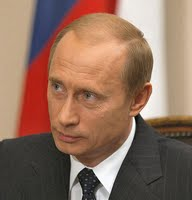
At the beginning of July, Russia, Kazakhstan and Belarus signed a number of protocols establishing a customs union between the three countries. The union, scheduled to be fully operational in January 2012, will create a single common market of about 170 million people and represents the latest of several attempts by Moscow to create an effective trade bloc with its newly independent neighbors since the break-up of the Soviet Union. In addition to the economic ties maintained through the establishment of the Commonwealth of Independent States (CIS), Russia first committed to a union with Belarus in 1994. That was followed […]
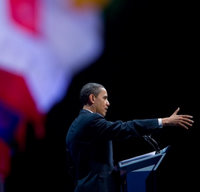
I am happy to report that, despite my fears, no dead fish arrived on my desk as a result of my last WPR column, in which I suggested that the best way for President Barack Obama to secure his fragile foreign policy gains would be to announce that he would not run for re-election. But while many readers found the piece to be an interesting intellectual exercise, the near-unanimous reaction was that this scenario would never occur in the real world. My concern was that the growing preoccupation first with the midterm elections, then with a re-election campaign in 2012, […]
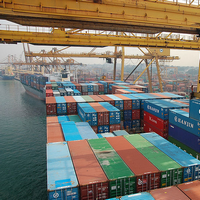
COLOMBO, Sri Lanka — On a steamy afternoon in the Sri Lankan capital, if you glance across the water at Colombo’s legendary Galle Face Green seaside promenade, past the spray of the Indian Ocean, you can make out a milky line of giant cargo ships at the point where the sky blends with the sea. That ocean traffic on the horizon, those dashes of gray steel, glide along the world’s busiest sea lane, navigated by anywhere from 100 to 200 ships every day. This is the maritime pipeline that makes it possible for China to remain the world’s fastest-growing economy. […]
